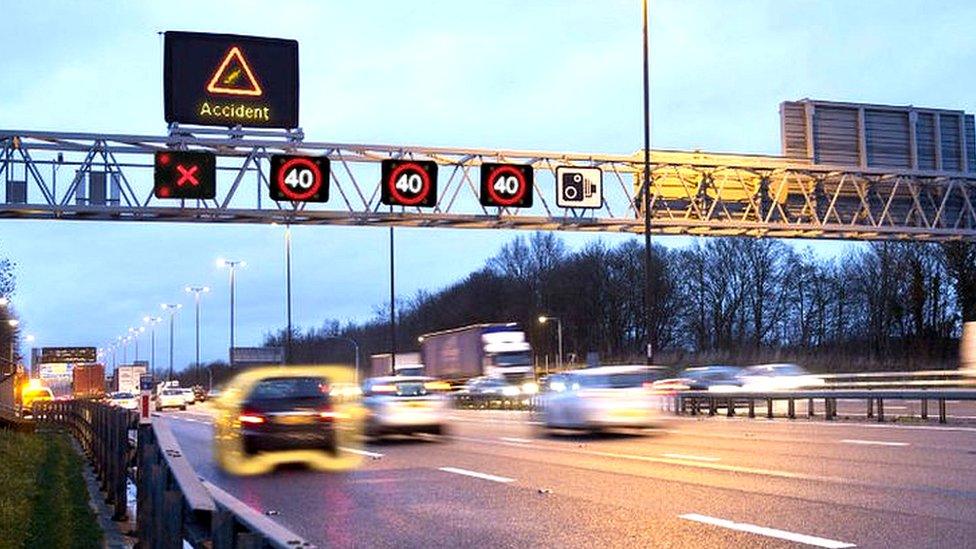Widow urges release of smart motorway reports
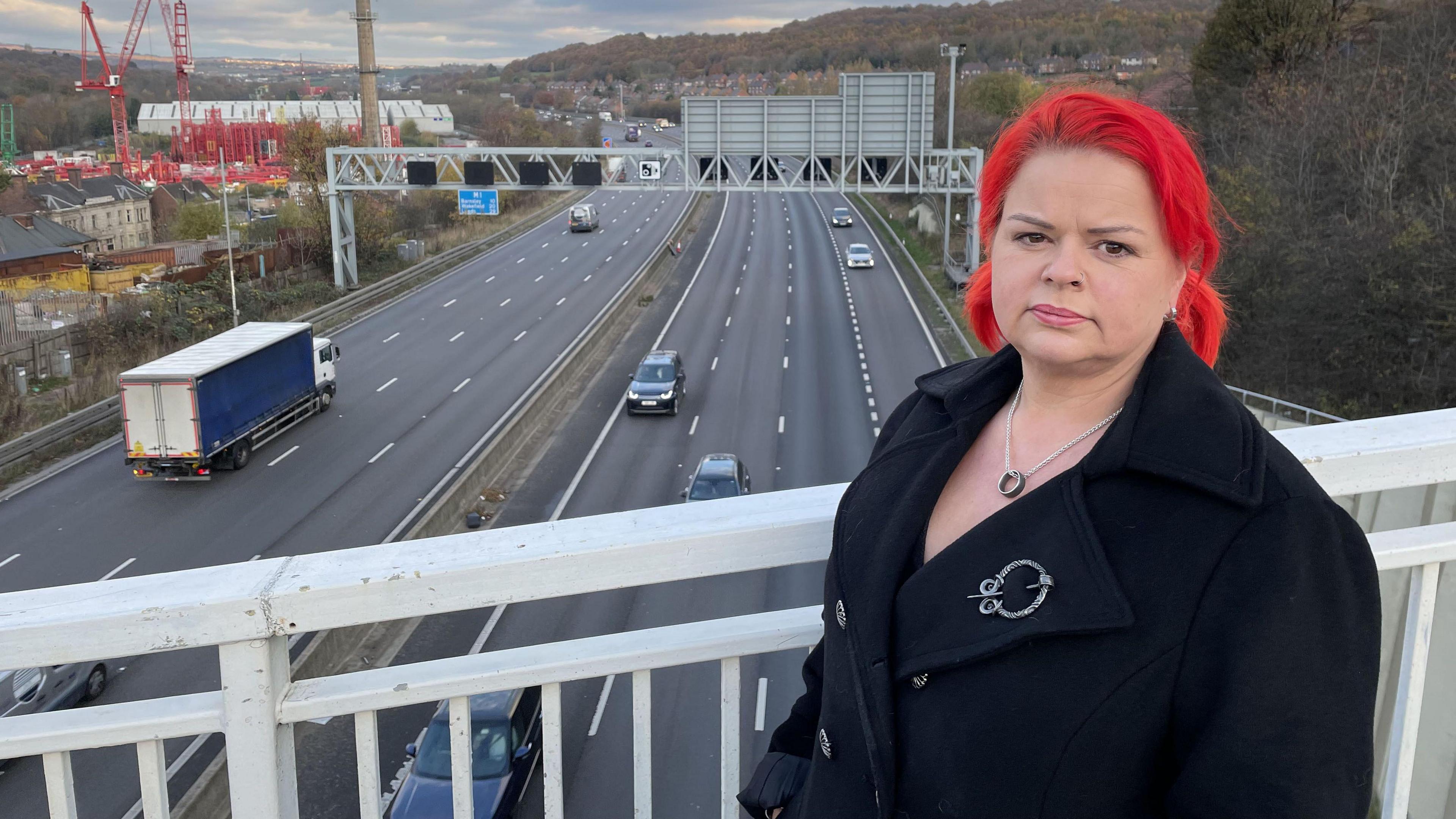
Claire Mercer is campaigning for the release of post project evaluation reports
- Published
The widow of a man who was killed on a smart motorway is campaigning for the release of unpublished road evaluation reports.
Jason Mercer, 44, was killed on the M1 near junction 34, Sheffield, where the hard shoulder is now an active lane, in June 2019.
His widow Claire has since been campaigning for the government to reinstall hard shoulders where they have been removed, arguing that data held in so-called post opening project evaluations (POPE) would back her calls.
National Highways said it had provided the reports to the Department for Transport and said they were in the process of undergoing a final review.
Mr Mercer and Alexandru Murgeanu, 22, died when a lorry ploughed into their stationary vehicles on 7 June 2019.
Mr Mercer, from Rotherham, and Mr Murgeanu, from Mansfield, had stopped in the left-hand lane after having a "minor bump" on the northbound carriageway between junctions 34 and 35.
The lorry driver, Prezemyslaw Szuba, was jailed for 10 months.
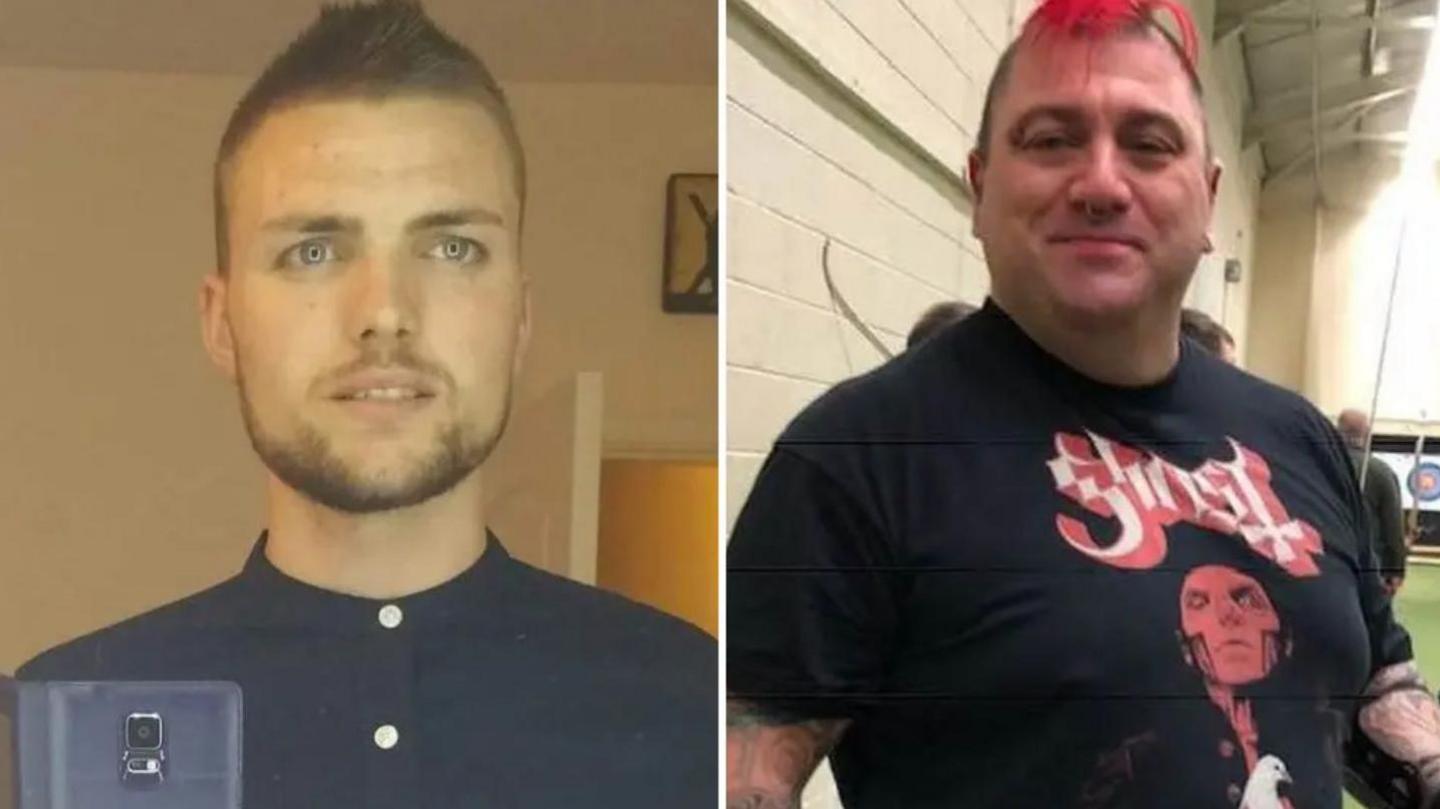
Alexandru Murgeanu (left) and Jason Mercer were killed in the crash on the M1 in South Yorkshire
Mrs Mercer and other campaigners will return to the DfT building in London later to "intensify calls for the urgent release" of the smart motorway POPE reports.
The documents, produced by National Highways, external, are an important part of assessing the performance of road schemes according to the organisation, and are essential for transparency and public safety.
Several five-year-after reports, including for the M1 junctions 28 to 31 and junctions 32 to 35a all lane running and M1 junctions 31 to 32 controlled motorway, have not been published.
A spokesperson for the DfT said it would provide an update on publication "in due course".
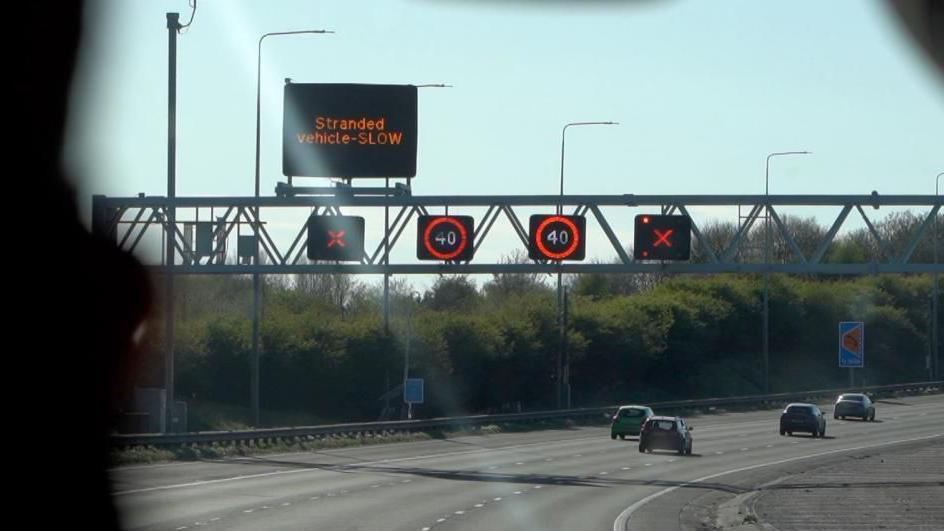
Technology is used on smart motorways to try to regulate traffic flow and ease congestion
Mrs Mercer said she believes the data in those reports would "not present smart motorways in a good light at all".
"National Highways has been saying to me for six years now 'we're sorry smart motorways killed your husband but they knock two minutes off your journey'," she said.
"That's not worth my husband and it's proving to not be true because when you get trapped, there's no way of getting out for hours but also the constant ongoing problems with smart motorways are causing more delays."
Smart motorways were designed to ease traffic flow, with some using the hard shoulder as an extra lane.
Mrs Mercer has been fiercely critical of the removal of hard shoulders, saying her husband would still be alive if there had been one on that particular stretch of the M1.
"He's dead, nothing's ever going to change that," she said.
"We can at least change laws."
'Smart motorways our safest roads'
Figures from last year show that at least 79 people have been killed on smart motorways since they were introduced in 2010 and several coroners have already called for them to be made safer.
The DfT and National Highways said smart motorways "remain our safest roads".
"We continue to monitor their performance and have significantly invested in safety features including rolling out over 150 more emergency areas on smart motorways, to give users peace of mind," a DfT spokesperson said.
A National Highways spokesperson said safety was a number one priority and added: "We're doing everything in our control to reduce deaths and serious injuries on our network."
Get in touch
Tell us which stories we should cover in Yorkshire
Listen to highlights from South Yorkshire on BBC Sounds, catch up with the latest episode of Look North
- Published12 June 2024
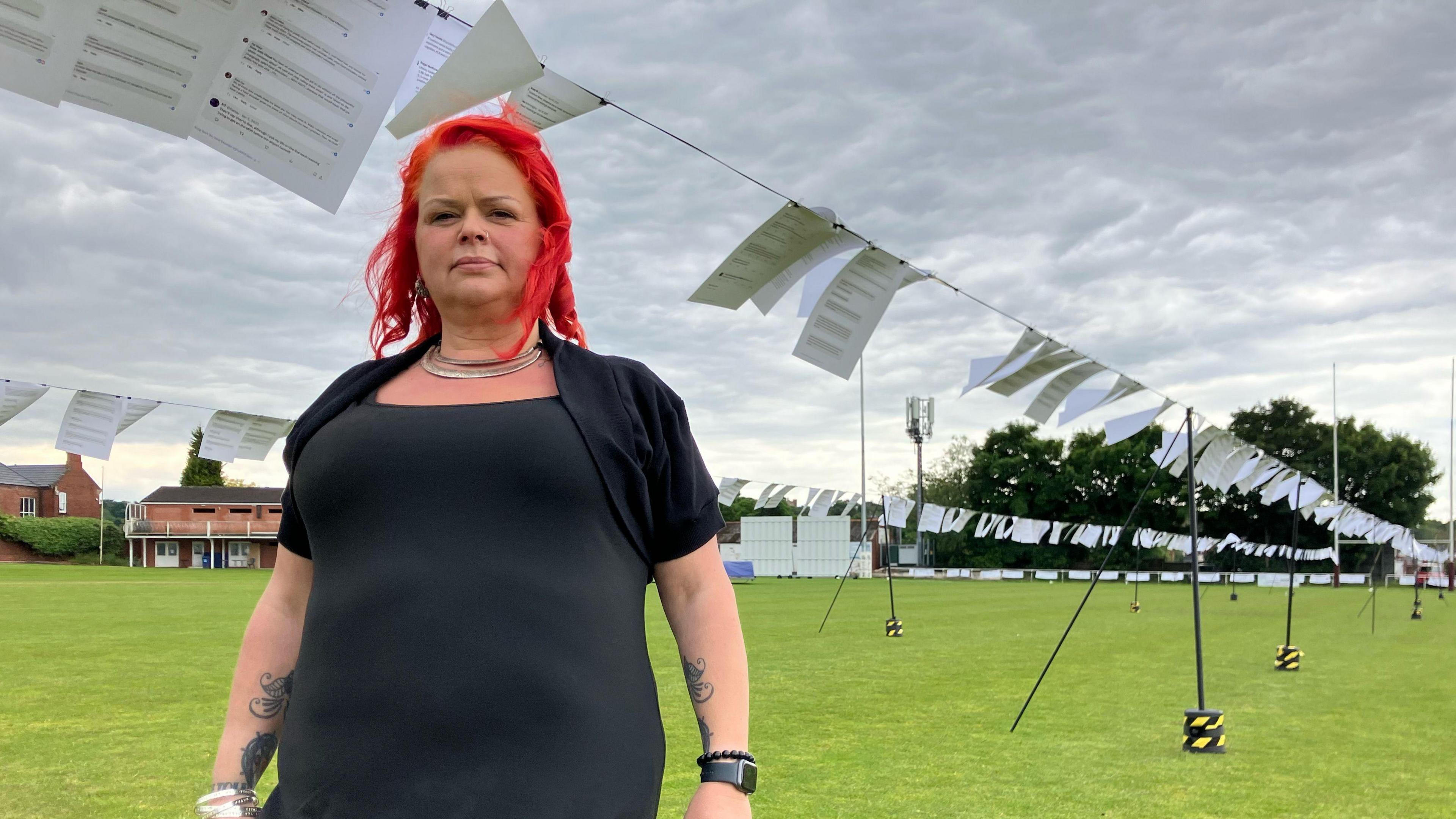
- Published23 December 2024
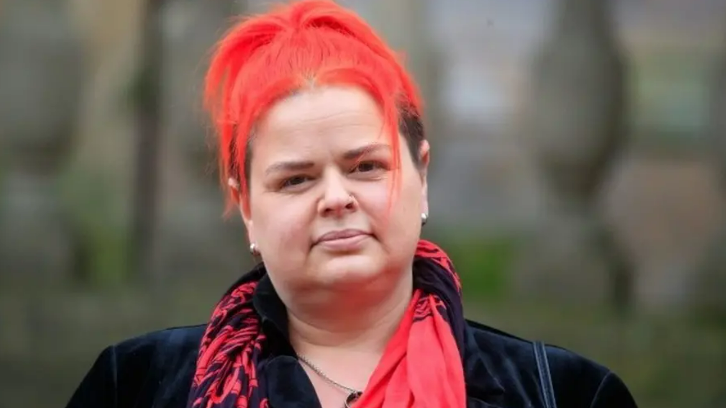
- Published22 April 2024
